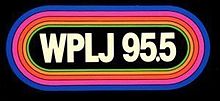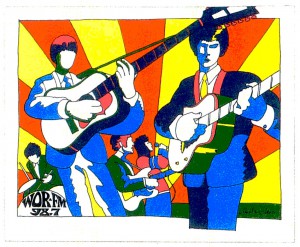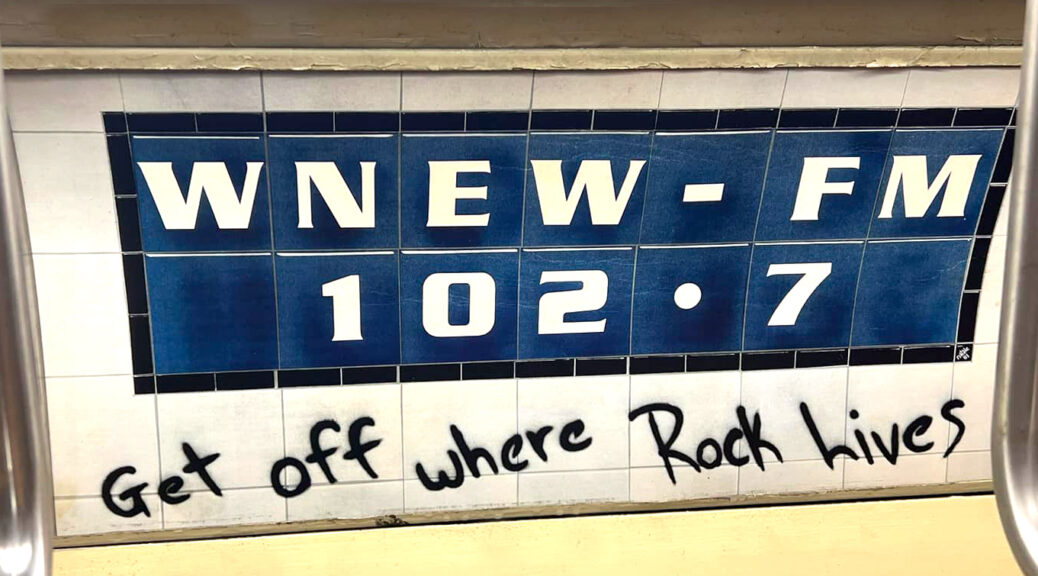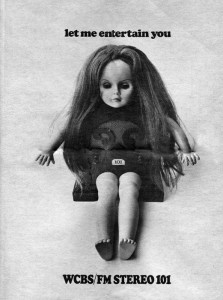FCC delivers FM Rock
 In the early 1960s, people were watching TV more and listening to radio less. In July 1964, the Federal Communications Commission (FCC) adopted a non-duplication rule. That meant that FM radio stations in cities of more than 100,000 people could no longer simulcast the programming of their AM counterparts. Stations fought the rule and delayed implementation.
In the early 1960s, people were watching TV more and listening to radio less. In July 1964, the Federal Communications Commission (FCC) adopted a non-duplication rule. That meant that FM radio stations in cities of more than 100,000 people could no longer simulcast the programming of their AM counterparts. Stations fought the rule and delayed implementation.
FCC delivers FM Rock
Almost FM Rock
March 21, 1965: a record growth of FM radio was reported at the opening session of the annual convention of the National Association of Broadcasters, but a controversy developed over what course the high-fidelity medium should pursue. More diversity in music? Did FM need more bop and and less Bach? (FM needs more bop and less Bach)
March 28, 1965: a column appeared in the NYT about how television had made inroads into the radio audience, but soon New York listeners will likely have more to listen to.
FCC delivers FM Rock
FM Rock…closer
March 28, 1965: overshadowed by the more spectacular doings of television, radio had interesting and hectic days ahead. New York City metropolitan area listeners were probably not aware in the fall there would be nine “new” radio stations for half of the program day.
FCC delivers FM Rock
December 13, 1965
December 13, 1965, the Federal Communications Commission announced that it would give consideration to requests from radio broadcasters seeking exemption from the simulcast rule. (NYT article)
FCC delivers FM Rock
Closer yet
It seemed to take forever and still by June 8, 1966 there are indications that NY “Music lovers in the Metropolitan area will be singing the praises of the Federal Communications Commission on Jan. 1.”
FCC delivers FM Rock
Finally
WOR-FM
 June 16, 1966: announcement that NY radio station WOR-FM would be first NYC FM station to play rock and roll music on a “regular basis.” ( WOR to broadcast rock)
June 16, 1966: announcement that NY radio station WOR-FM would be first NYC FM station to play rock and roll music on a “regular basis.” ( WOR to broadcast rock)
July 31, 1966: WOR-FM began running a free form progressive rock format for most of its broadcast day. There were no DJs at first because management was unable to come to an agreement with AFTRA (the union that represents on air talent).
October 8, 1966, WOR-FM disc jockeys started. A NYT article led with: Radio station WOR-FM, which has been broadcasting rock ‘n’ roll music without interruption by announcers, will add the chitter-chatter of four disk jockeys, beginning tomorrow. A station official asserted, however that WOR-FM would not become a “screaming station.” (article: Oct 7, 1966…djs start)
Here’s a taste of it on one of Rosko’s shows:
FCC delivers FM Rock
Rosko resigns
Ironically, on October 2, 1967, Rosko resigned over corporate interference with his choices of music. (”When are we going to learn that controlling something does not take it out of the minds of people?” and declaring, ”In no way can I feel that I can continue my radio career by being dishonest with you.” He added that he would rather return to being a men’s-room attendant.
But he continued of course. How many of you learned the name Kahil Gibran from him?
A great site with lots of NY radio history is the NY Radio Archive site. Check it out sometime.



Thank you!
I will be able to fit some of this into my tours!
Thank you for keeping the flame alive!
WOR-FM’s negotiated minimum of $175 a week would work out to $68k a year now, though i doubt any of the original 4 DJs signed for minimum. Not a lot, but not shabby either. Certainly a lot more than many jocks make now for tracking a half dozen stations at once.
Are you sure of your numbers? $175 a week is $9100 a year if I’m reading you correctly.
I believe he’s talking about 2015 Inflationary Dollars. Not sure if that’s actually true though. Some DJ’s made more through ad sales,tradeouts, promos, and other less scrupulous activities.
You’re right. I should have read the post more carefully. Thanks for contributing.